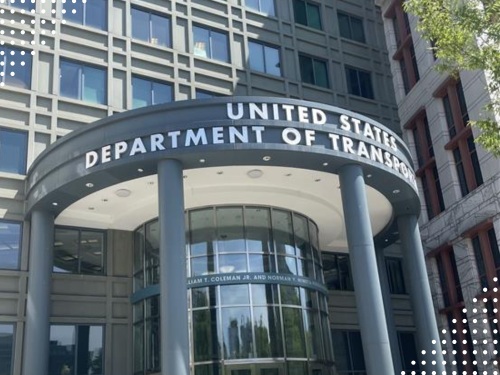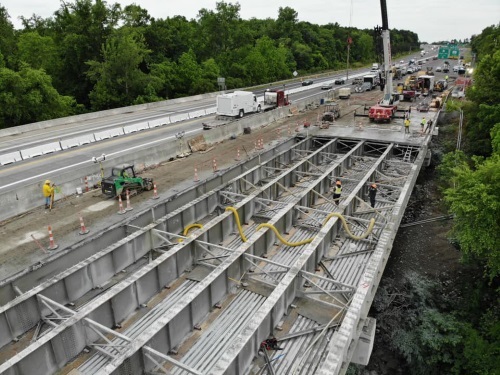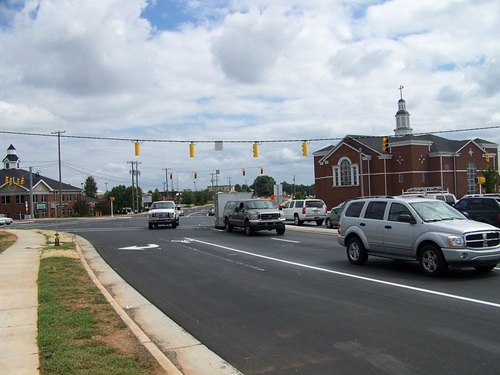On June 10, the Federal Highway Administration issued its first notice of funding opportunity for the new five-year $12.5 billion Bridge Investment Program established by the $1.2 Infrastructure Investment and Jobs Act or IIJA enacted in November 2021.
[Above photo by the South Carolina DOT]
FHWA said nearly $2.4 billion is available through this new program for fiscal year 2022, which comes on top of more than $27 billion in formula bridge funding the agency made available in January.

FHWA noted that its new Bridge Investment Program is a discretionary grant program that focuses on the repair, rehabilitation, or replacement of existing bridges nationwide to reduce the overall number of those bridges either in poor condition, or in fair condition at risk of declining into poor condition.
It also expands applicant eligibilities to create opportunity for all levels of government to be direct recipients of program funds. For example, in addition to states and federal lands management agencies, metropolitan planning organizations and local and tribal governments can also apply directly to FHWA, making it easier to advance bridge projects at the local level.
Other aspects of new program include:
- Allowing multi-year grant agreements to fund large projects by making it possible to take a project through pre-construction activities and into construction.
- Offering grants that help fund the planning process, including planning, feasibility analysis and revenue forecasting associated with the development of a project that would subsequently be eligible to apply for the Bridge Investment Program.
- Offering two types of construction grants, covering “large” projects over $100 million and “bridge projects” at up to $100 million.
“These funds will make a significant contribution to improving the condition of our nation’s aging bridges, both large, signature bridge projects that are important for our national economy as well as smaller structures that provide benefits at the regional and local levels and are critical for communities across the country,” noted Stephanie Pollack FHWA deputy administrator in a statement. “FHWA has designed this program to meet the needs of communities and bridges of all sizes, including those that are still in the planning stage.”
 Top Stories
Top Stories


